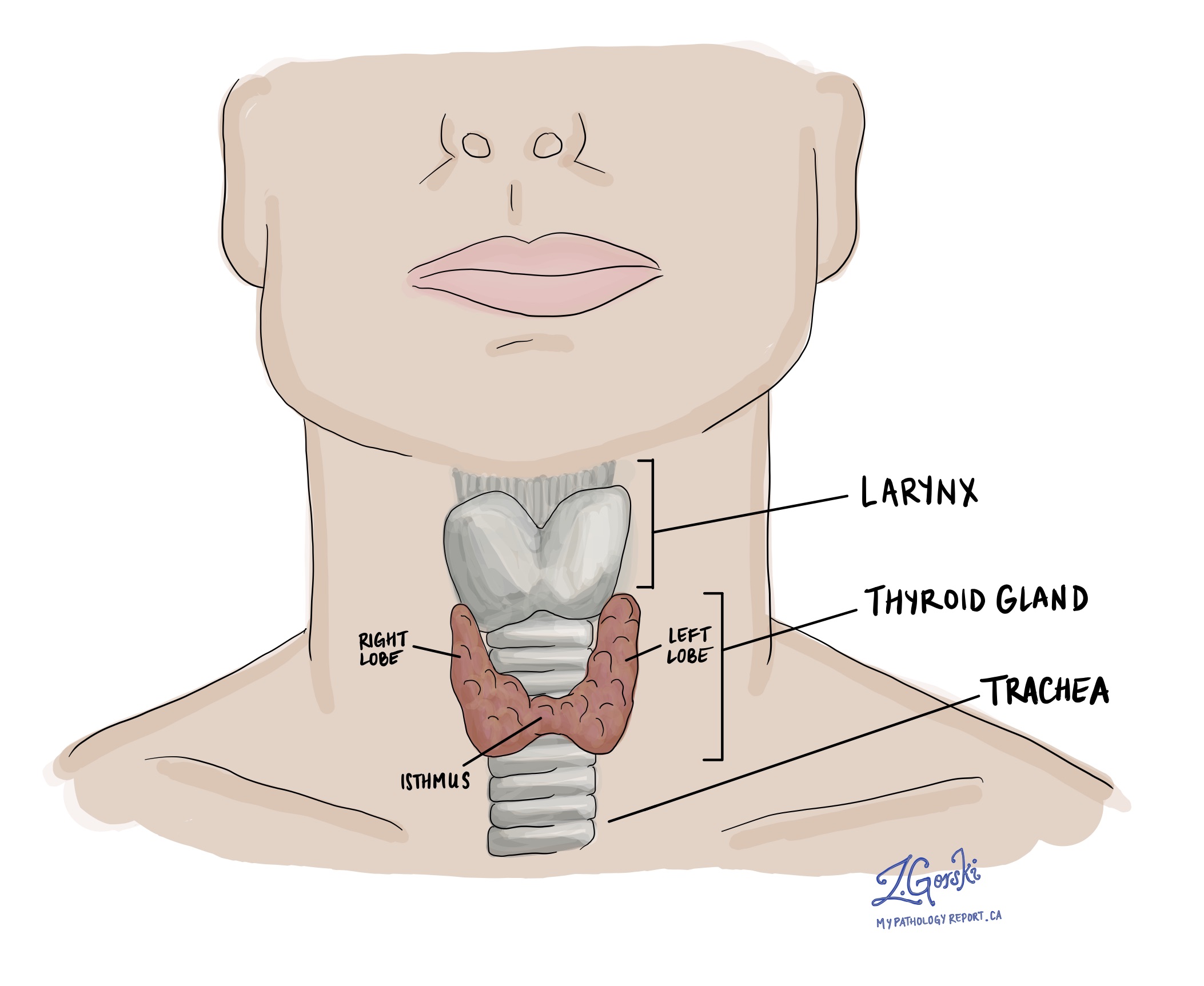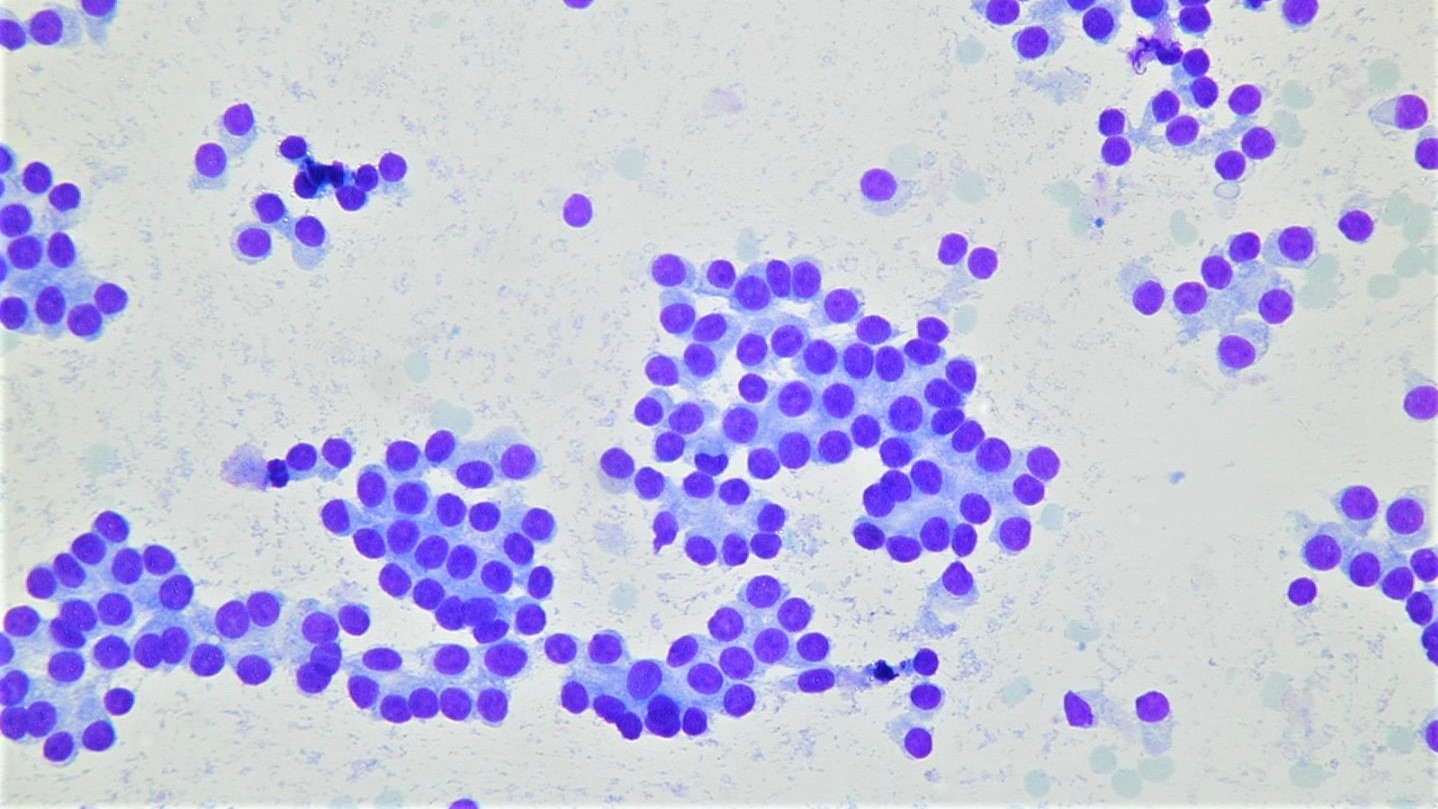Jason Wasserman MD PhD FRCPC
January 24, 2024
A benign follicular nodule is a non-cancerous lump in the thyroid gland. The thyroid gland is located in your neck and produces hormones that control your metabolism. “Benign” means it’s not cancer. The nodule is often associated with a condition called nodular thyroid hyperplasia which means non-cancerous growth of the thyroid gland. In this condition, multiple nodules of various sizes may be found in the thyroid gland.

What causes a benign follicular nodule?
The exact cause is not always known. Factors like iodine deficiency and genetic predispositions can play a role. Often, they develop without a clear reason.
How is this diagnosis made?
The diagnosis of a benign follicular nodule usually involves several steps. It often starts with a physical examination if a lump is noticed on the neck. Then, imaging tests like an ultrasound are done to get a closer look at the thyroid gland. The most definitive step is a fine needle aspiration biopsy (FNAB). In this procedure, a thin needle is used to extract a small sample of cells from the nodule. These cells are then examined under a microscope by a pathologist to determine whether the nodule is benign or not.
Microscopic features
Under microscopic examination, a benign follicular nodule is made up of follicular cells normally found in the thyroid gland. The follicular cells are often arranged in round groups called follicles that typically contain a fluid called colloid. The follicular cells are typically small and evenly spaced out so that there is very little overlap in the cells. Inflammatory cells such as lymphocytes and histiocytes may also be seen in the sample.

Next steps after fine needle aspiration biopsy
In most cases, a benign follicular nodule of the thyroid gland does not need to be surgically removed. Since these nodules are non-cancerous and typically don’t cause harm, the primary approach is often observation and regular monitoring. Surgery is considered only if the nodule causes discomfort, affects swallowing or breathing, or suddenly starts to grow. Your doctor will recommend the best course of action based on the size, appearance, and symptoms associated with the nodule.
Risk of cancer
The risk of cancer in a benign follicular nodule is very low. However, regular check-ups are important to monitor any changes. If there are changes in size or appearance, further evaluation may be necessary.


